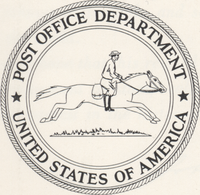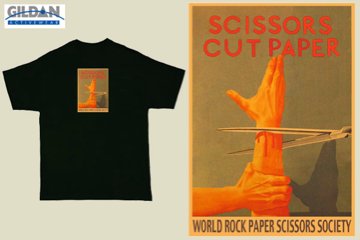Well, maybe all those MoveOn phone calls added up to something after all. I wrote before about Saturday’s telephone session, calling voters in Ohio and New Jersey (both the candidates we were calling to support, Sherrod Brown and Robert Menendez, won; in Brown’s case, he beat a Republican incumbent). Then:
–We had a couple people over on Sunday and made another 280 calls or so all together for Senate candidates in Pennsylvania and Missouri. Both of them–Bob Casey and Claire McCaskill–won. In Casey’s case, I printed out some background material on him, including a Wikipedia article that (accurately) describes his conservative views on abortion (he’d like to see Roe v. Wade overturned) and gun control (he doesn’t like it). But MoveOn, which I think it’s safe to say has an image of being on the left edge of the Democratic Party’s left wing, was calling on his behalf 1) to help knock off Casey’s opponent, radical right-winger Rick Santorum, and 2) to further the Democrats’ strategy to win back Congress (another conservative Democrat it worked for: Heath Shuler, elected to the House from North Carolina).
In any case, one of our guests started reading about Casey and exclaimed, “I don’t like this guy at all. Why am I making calls for him?” I didn’t really disagree with her thoughts about Casey; after all, how many more Liebermans do the Democrats need? But my stronger feeling was that we’d been given a job and I wanted to complete it. Luckily, I kept the new anti-Caseyite on board by giving her some Missouri voters to call; Claire McCaskill is a much more palatable candidate from a Berkeley liberals point of view.
–On Monday, I went into the MoveOn office in the early afternoon and stayed late enough that my car got locked into the city of Oakland parking garage I was using, a couple blocks away (not that it was that late: Oakland’s swinging downtown turns the lights out as soon as the local officeworkers head home, and the garage closes at 7). I spent part of the day calling MoveOn volunteers to see if we could get them to commit to more last-minute calling; most of the calls were to people in the East Bay, including half a dozen or so to people with Berkeley phone numbers. I was a little chagrined that among the Berkeley folks I contacted, no one had done the calling they had committed to, and no one wanted to do any. The charitable course would be to withhold judgment and recognize my own lack of past involvement; later, I’ll take the charitable course. For now, I think a lot of people in Berkeley feel like they’re taking a stand by living here and tolerating or partaking in the wild and crazy atmosphere, which is so enlightened compared to anywhere else you can think of.
I think I remember calling into two states on Monday: Maryland, for Senate candidate Ben Cardin (he won). Then, at the tail end of my shift, into Arizona’s 1st Congressional District, which is an amazing chunk of territory: 58,000 square miles or so, more than half the entire state (and bigger, by itself, than the entire state of Illinois). We called on behalf of the Democrat running there, a lawyer named Ellen Simon. At one point, I reached a guy who said he had four mail-in ballots, cast for Simon and other Democrats by himself and family members, but he didn’t know what to do with them now that it was too late to mail them in time to get them counted. I thought it would be easy to find out the details of Arizona’s law on this, but nowhere I looked–state and county and Democratic Party websites, gave a definitive answer. As a last resort, I had the brainstorm of looking up the candidate’s home phone number, since I knew her hometown. Surprisingly, there was a listing online. I called, and got a guy who said that Ellen Simon was out on the campaign trail. I explained what I needed to know, and this guy–her husband, I presume–told me that all the voter needed to do was bring the signed ballots into a polling place and they would be accepted. As it turned out, though, Simon needed those four votes and then some: She lost by 13,000 votes.
–On Tuesday, MoveOn opened the Oakland office at 5 a.m. I got there about 5:20, and there were already about 10 people making calls or getting ready for the day. Since I brought my laptop, I made calls through the group’s online call site: first to the 20th District in New York; then to the 2nd District in Connecticut; then to the 1st District in Iowa; then to MoveOn volunteers to try to rally people one last time to make more calls.
The whole feeling of the day was different: First, people saw light at the end of the tunnel. For both the people making the calls and the people getting them, they knew the blitz was almost over. But something else was different from even the previous day.
The entire calling process is a vast numbers game, nearly impossible to get a grasp of when you’re calling number after number in far-off states for candidates you may well have never heard of before you started dialing the phone for the day. At the beginning of the calliing campaign, the phone lists are pretty rough. I’m not sure of the criteria that landed people on our rosters, but at a minimum, I’d guess two factors were present: They had been registered Democrats, and they hadn’t voted in one or more elections over the last few years. When you start calling through the raw lists, you get lots of what seem like fruitless calls: hang-ups, disconnected numbers, people who tell you in no uncertain terms they love President Bush and wouldn’t think of voting for a Democrat now. Many, many calls are unresolved: A machine picks up, and you leave a message; the people on the other end won’t tell you how they’re voting, even if they say they’re Democrats; some say they’ve already voted. Occasionally–very occasionally, someone will tell you they plan to vote for the Democrat in the race and might even tell you what time they plan to go to the polls. So what you and the tens of thousands of other people calling from around the country are doing, one number at a time, is winnowing down the lists, culling out the bad numbers and the hostile voters one by one until, on the morning of the election, your left mostly with those who have indicated they’re going to support your candidate.
So while it was still dark in Oakland Tuesday morning, I was calling people in New York to make sure they were doing what they had said they were going to do: Get out to the polls and vote. The aim isn’t to get every single promised voter out the door, but rather to nudge enough of them that they might make a difference in a close race. And the assumption was they all the races we were making calls on were very close.
So: the New York 20th. Kirsten Gillibrand–the online calling interface advised it was pronounced JILL-uh-brand–was running against a pretty well entrenched Republican (though one, I heard later, had a possible history of domestic violence to explain during the campaign). She won.
After making 20 or so calls there and getting mostly cheerful- or relieved-sounding people, the calling system started spitting out numbers for the Connecticut 2nd District, for a guy named Joe Courtney. With all 242,000 votes in the district counted, he’s ahead by 170.
Then on to the 1st District in Iowa, where a college professor named Dave Loebsack was running against another well-established Republican. My 24 calls into his district all went to a little town called West Liberty, just east of Iowa City. I got lots of machines and precisely one voter who said they planned to go out and vote for Professor Loebsack (pronounced LOBE-sack). He won.
–After about five hours of that fun, I went home, took a nap, took the dog for a walk, and voted. I came home and, urged on by a MoveOn email, logged on to the calling site and made some last-minute calls to New York, to Colorado, to Idaho. When Kate got home, we went back to the polling place to drop off her absentee ballot, picked up a couple hamburgers, and came home to watch the returns. I was surprised that the broadcast networks all stuck with their prime-time programming. So, we had a diet of CNN, MSNBC and even a dash of Fox News until 10 p.m., when we switched over to the still Leslie Griffithless KTVU news. Sometime after 11, our neighbors Jill and Piero came over and we opened a bottle of champagne to toast the results. The last time we did that was 1992, the night Bill Clinton won, in the street in front of our house. You know, that was really a long time ago.
Technorati Tags: berkeley, berkeley photography, bush, elections, moveon.org

 You know, there’s supposed to be an old British documentary called “The Night Mail.” I think that’s the title. About an overnight mail train. I’ve never seen it; it’s supposed to be a classic. But that’s not what I’m referring to here. Rather, it’s the arrival of today’s mail at 7 p.m. This after getting no mail yesterday (a regular delivery day despite the proximity to Veterans Day). And no mail on Saturday, which was Veterans Day. I got calls from neighbors the last couple of nights wondering what was going on.
You know, there’s supposed to be an old British documentary called “The Night Mail.” I think that’s the title. About an overnight mail train. I’ve never seen it; it’s supposed to be a classic. But that’s not what I’m referring to here. Rather, it’s the arrival of today’s mail at 7 p.m. This after getting no mail yesterday (a regular delivery day despite the proximity to Veterans Day). And no mail on Saturday, which was Veterans Day. I got calls from neighbors the last couple of nights wondering what was going on.
